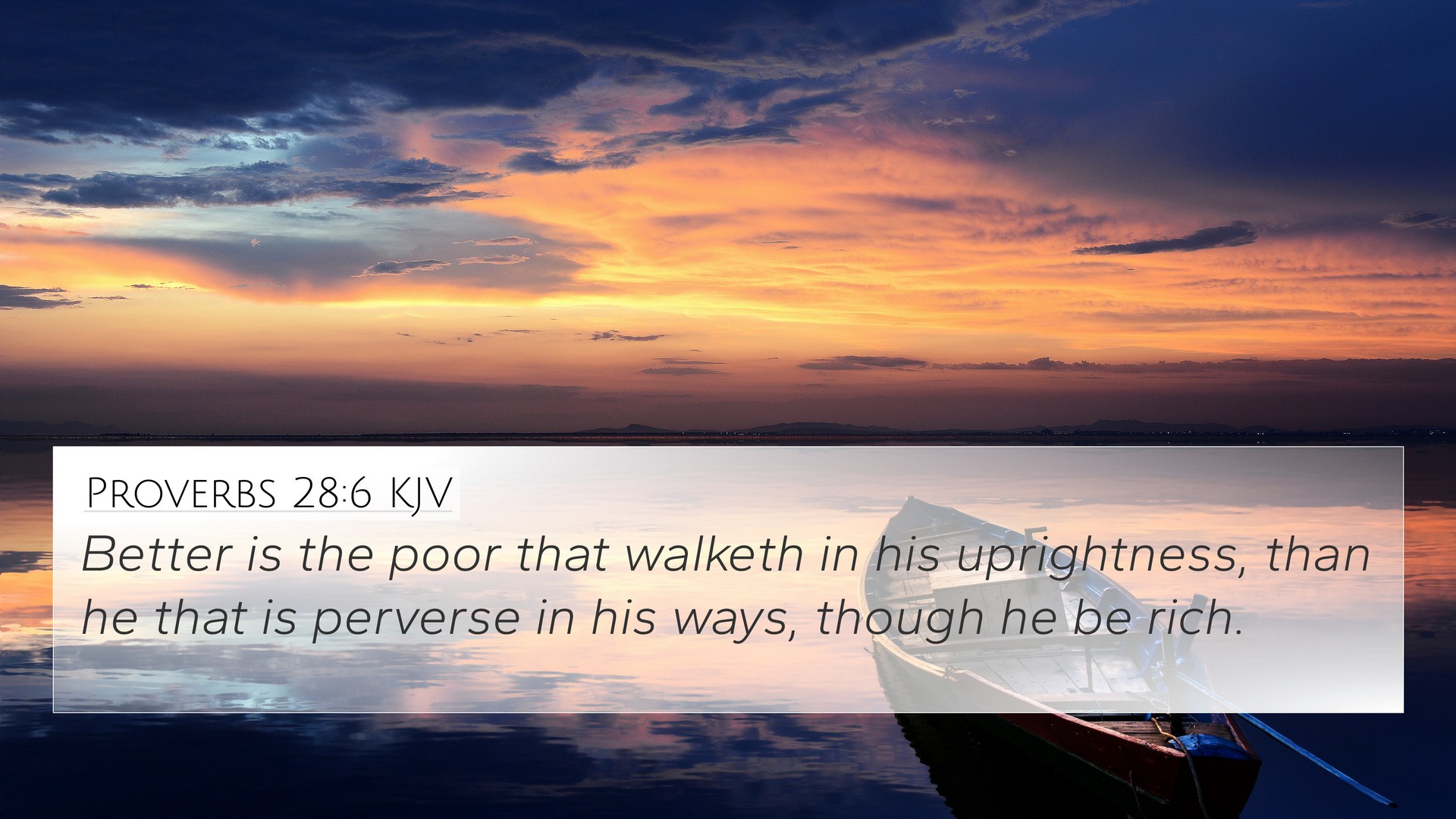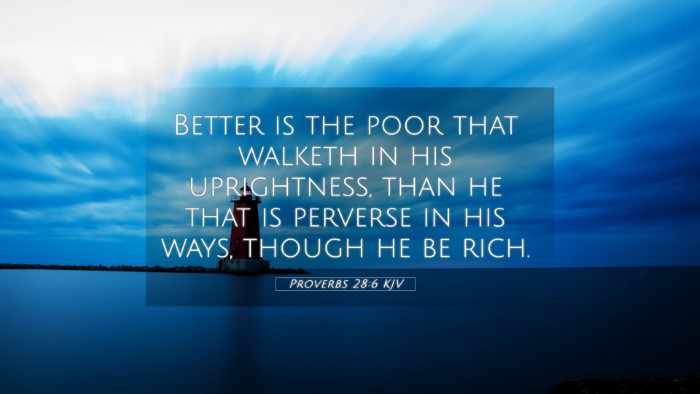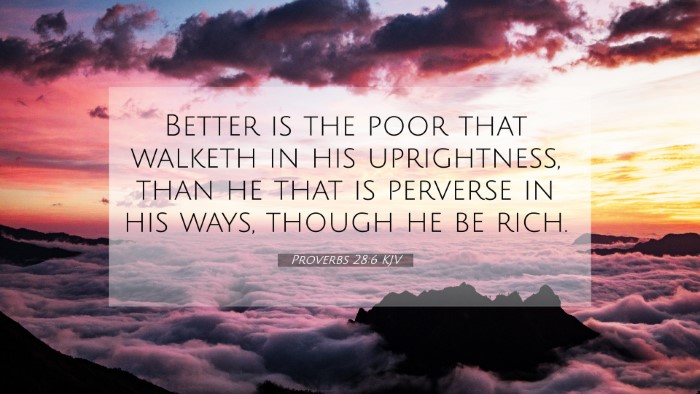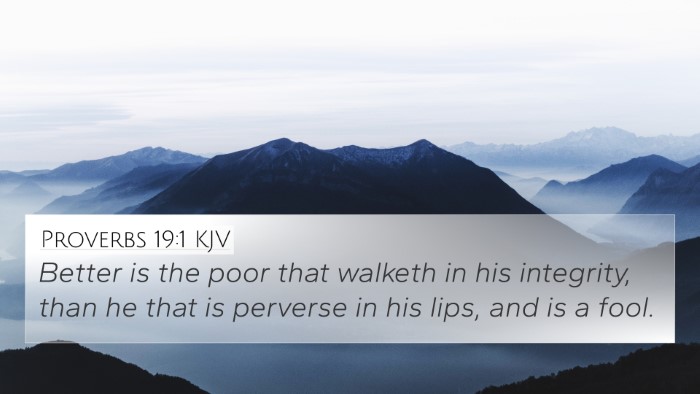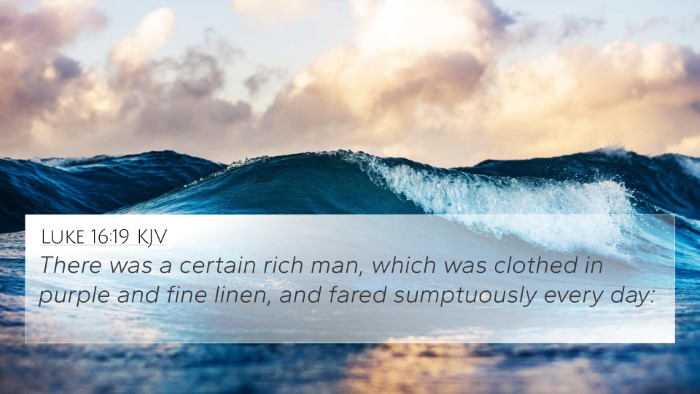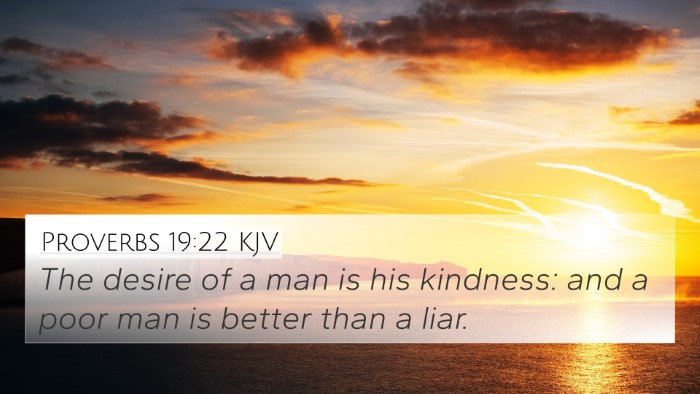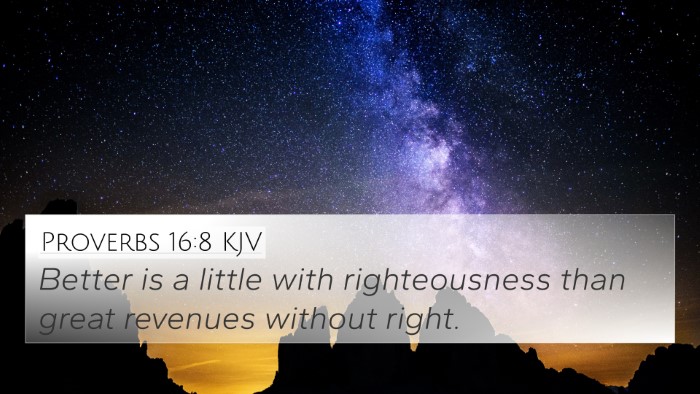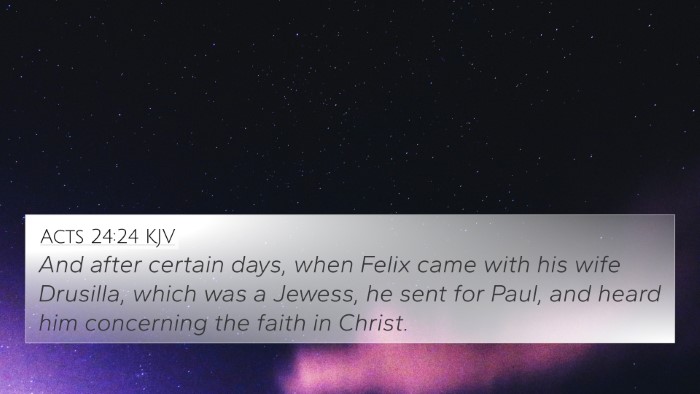Understanding Proverbs 28:6
Proverbs 28:6 states: "Better is the poor that walketh in his uprightness, than he that is perverse in his ways, though he be rich."
Meaning and Analysis
This verse presents a comparative lesson about integrity and righteousness versus wealth.
Insights from Public Domain Commentaries
- Matthew Henry: Henry emphasizes that spiritual uprightness is far superior to physical wealth. He considers that the poor who remain virtuous have a character that earns God's favor, while the rich who are corrupt may face dire consequences.
- Albert Barnes: Barnes notes that the overarching theme of Proverbs is the contrast between the righteous and the wicked. He reflects that righteousness is intrinsically valuable and lasting, while riches can be misleading and ephemeral.
- Adam Clarke: Clarke discusses how outward circumstances (such as being poor) should not overshadow one's moral standing. He warns of the dangers of wealth being a temptation that leads to moral decline.
Key Themes
This verse touches upon significant themes relevant to both historical and contemporary audiences:
- The Value of Righteousness: Emphasizing that integrity should take precedence over one's financial status.
- Poverty and Virtue: The contrast between wealth and ethical living, illustrating that personal character far outweighs material possessions.
- Perverse Ways: The term "perverse" refers to a wicked lifestyle that can accompany riches, highlighting the moral pitfalls of materialism.
Related Bible Verses
Understanding connections between Bible verses enhances our comprehension. Here are some relevant cross-references to Proverbs 28:6:
- Proverbs 19:1: "Better is the poor that walketh in his integrity than he that is perverse in his lips, and is a fool."
- Luke 16:19-31: The parable of the rich man and Lazarus illustrates the fate of the wealthy versus the righteous poor man.
- James 2:5: "Hearken, my beloved brethren, Hath not God chosen the poor of this world rich in faith, and heirs of the kingdom?"
- 1 Timothy 6:9-10: Warns that those who desire to be rich fall into temptation and snare, leading to destruction.
- Proverbs 10:2: "Treasures of wickedness profit nothing: but righteousness delivereth from death."
- Psalms 37:16: "A little that a righteous man hath is better than the riches of many wicked."
- Proverbs 11:4: "Riches profit not in the day of wrath: but righteousness delivereth from death."
- Matthew 5:3: "Blessed are the poor in spirit: for theirs is the kingdom of heaven," connecting spiritual poverty with divine blessing.
- Proverbs 15:16: "Better is little with the fear of the Lord than great treasure and trouble therewith."
- Ecclesiastes 5:10: "He that loveth silver shall not be satisfied with silver; nor he that loveth abundance with increase."
Conclusion
In summation, Proverbs 28:6 serves as a vital reminder of the paramount importance of living a life of integrity, regardless of financial status. The rich may appear advantaged, but their moral choices ultimately define their true standing in life and before God. This verse encourages believers to reflect upon their values and priorities, ensuring that the pursuit of righteousness remains at the forefront of their lives.
Further Study Tools
For deeper insights into the Scriptures and to explore the connections between Biblical texts, consider utilizing the following:
- Bible Concordance: A helpful resource for finding themes and connections between verses.
- Bible Cross-Reference Guide: Useful for conducting thematic Bible verse connections.
- Bible Study Apps: Many modern tools allow you to quickly locate cross-references and study notes.
- Online Bible Commentaries: Access various interpretations from renowned theologians.
- Bible Reference Books: Comprehensive materials that provide extensive cross-references and thematic studies.
Exploring Cross-referencing in Scripture
Utilizing a systematic approach to cross-referencing Bible verses can enrich your study of scriptures. Consider the following methods:
- Identify Themes: Focus on major themes in scripture, such as poverty and righteousness.
- Compare and Contrast: Look for similarities between verses such as Proverbs 28:6 and other Proverbs that address wealth.
- Use Study Guides: Leverage guides that provide structured cross-references for an in-depth comparative analysis.
- Create a Chain Reference: Track themes across both the Old and New Testaments for a holistic view.
